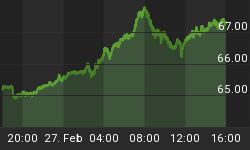In this week's much anticipated State of the Union address, President Obama again demonstrated his poor understanding of the fundamental problems that confront our nation. By following the advice of the same people who helped guide our economy to the precipice of total collapse, Obama now threatens to push it over the edge.
Notwithstanding his well crafted lip service regarding future spending restraint, the essence of his current program is for more government spending and larger deficits. For all his talk about job creation, his policies will further burden those who might otherwise create those jobs with higher taxes and more regulation. While he did call for tax cuts for the middle class and offered what amounts to bailouts for those struggling to repay student loans, such cuts do nothing to promote growth in the near term and will add to the deficits in the long term.
The President spoke optimistically about the future, but in reality there is little evidence to support such an upbeat outlook. He began his speech by assuring us that the worst of the storm had passed. General Custer may have said something similar when the first wave of Indian attacks ebbed at Little Big Horn.
While Obama did have some harsh words for Wall Street (not exactly a courageous political stance), he leveled no criticism at the Federal Reserve or other government agencies that had financed and guaranteed all the ridiculous real estate speculation that precipitated the crash. And while he at least conceded that the prosperity of the last decade was based on illusions, he continued to endorse the very policies that produced the mirage in the first place.
To lead us back to brighter days, he articulated a vision of a centrally planned recovery, where clean energy and a Soviet style five-year plan to double our exports would make our economy preeminent once more. He fails to understand that the only reason our economy rose to the top in the first place is that the government left it alone.
In the words of the Spanish philosopher George Santayana, "Those who cannot learn from history are doomed to repeat it." Since our President cannot even learn from the mistakes of his immediate predecessor, to say nothing of those he made himself while in the Senate or during his first year as president, we are surely doomed to repeat them, perhaps more quickly than Santayana could have imagined.
Rather than tightening the reins on the reckless monetary policy that undermined our savings, diminished our industrial output, inflated asset bubbles, and led to reckless speculation on Wall Street and excess consumption on Main Street, we are loosing them further. Rather than repealing regulations that distort markets and create moral hazards, we are adding new ones that do more of the same. Rather than cutting government spending to reduce the burden it places on our economy, we are increasing both the amount of the spending and the size of the burden. Rather than making government smaller so that the private sector can grow, we are making government bigger and forcing the private sector to shrink. Rather than paying off our debts we are taking on even more. Rather than encouraging people to save we are enticing them to spend. Rather than creating jobs, we are merely creating unemployment benefits.
As a result, instead of seeding the soil for a real recovery we are setting the stage for a prolonged depression.
For a more in-depth analysis of our financial problems and the inherent dangers they pose for the U.S. economy and U.S. dollar, read Peter Schiff's 2008 bestseller "The Little Book of Bull Moves in Bear Markets" and his newest release "Crash Proof 2.0: How to Profit from the Economic Collapse." Click here to learn more.
More importantly, don't let the great deals pass you by. Get an inside view of Peter's playbook with his new Special Report, "Peter Schiff's Five Favorite Investment Choices for the Next Five Years." Click here to dowload the report for free. You can find more free services for global investors, and learn about the Euro Pacific advantage, at www.europac.net.















